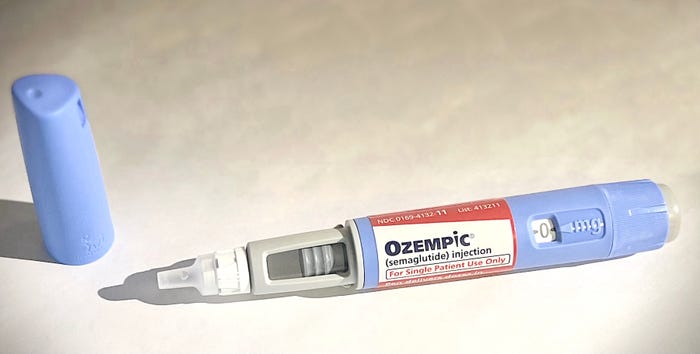Ozempic, a medication used to manage type 2 diabetes and aid in weight loss, is effective for many patients. However, like all medications, it comes with potential side effects. Understanding these side effects is crucial for making informed decisions about your treatment. Here’s what Dubai residents need to know about the side effects of Ozempic uae.
Common Side Effects
Gastrointestinal Issues
- Nausea: One of the most commonly reported side effects is nausea, which can occur as your body adjusts to the medication. This usually improves over time.
- Diarrhea and Constipation: Some users may experience diarrhea or constipation. Keeping hydrated and maintaining a balanced diet can help manage these symptoms.
Injection Site Reactions
- Local Reactions: Some people experience redness, swelling, or irritation at the injection site. Rotating injection sites can minimize these effects.
- Pain or Discomfort: Mild pain or discomfort at the site of injection is possible but typically resolves with time.
Less Common Side Effects
Hypoglycemia
- Low Blood Sugar: Although less common, Ozempic can cause hypoglycemia (low blood sugar), particularly when used with other diabetes medications. Symptoms include dizziness, sweating, and confusion. Regular monitoring of blood sugar levels can help manage this risk.
Pancreatitis
- Inflammation of the Pancreas: Rarely, Ozempic can cause pancreatitis, which is an inflammation of the pancreas. Symptoms include severe abdominal pain, nausea, and vomiting. Seek medical attention immediately if you experience these symptoms.
Thyroid Issues
- Thyroid Tumors: Animal studies have shown a potential link between GLP-1 receptor agonists like Ozempic and thyroid tumors. While this risk has not been confirmed in humans, it’s important to discuss any thyroid-related concerns with your healthcare provider.
Rare but Serious Side Effects
Kidney Problems
- Renal Issues: Some users may experience changes in kidney function, particularly if they have pre-existing kidney conditions. Symptoms can include swelling in the legs or feet and changes in urination.
Allergic Reactions
- Severe Allergies: Though rare, severe allergic reactions such as rash, itching, or difficulty breathing can occur. Seek immediate medical attention if you experience symptoms of a serious allergic reaction.
Managing Side Effects
Monitoring and Reporting
- Regular Check-Ups: Regular appointments with your healthcare provider are essential for monitoring side effects and making necessary adjustments to your treatment plan.
- Report Symptoms: Always report any side effects or unusual symptoms to your healthcare provider promptly. They can help determine the best course of action.
Lifestyle Adjustments
- Diet and Hydration: Maintaining a healthy diet and staying hydrated can help manage gastrointestinal side effects. Eating smaller, more frequent meals may also reduce nausea.
- Injection Technique: Proper injection technique and rotating injection sites can help minimize local reactions and discomfort.
Support Resources
- Educational Materials: Use any educational resources provided by your healthcare provider or the manufacturer of Ozempic to understand and manage side effects effectively.
- Support Groups: Consider joining support groups or online communities for additional advice and shared experiences with others using Ozempic.
Conclusion
Ozempic is a valuable medication for managing type 2 diabetes and supporting weight loss, but it’s important to be aware of potential side effects. Common side effects include nausea, gastrointestinal issues, and injection site reactions. Less common but serious side effects may include pancreatitis, thyroid issues, and kidney problems.
If you experience any side effects or have concerns about your treatment, consult your healthcare provider in Dubai. They can provide guidance, adjust your treatment plan if needed, and ensure you achieve the best results with Ozempic while managing any potential risks.





Comments